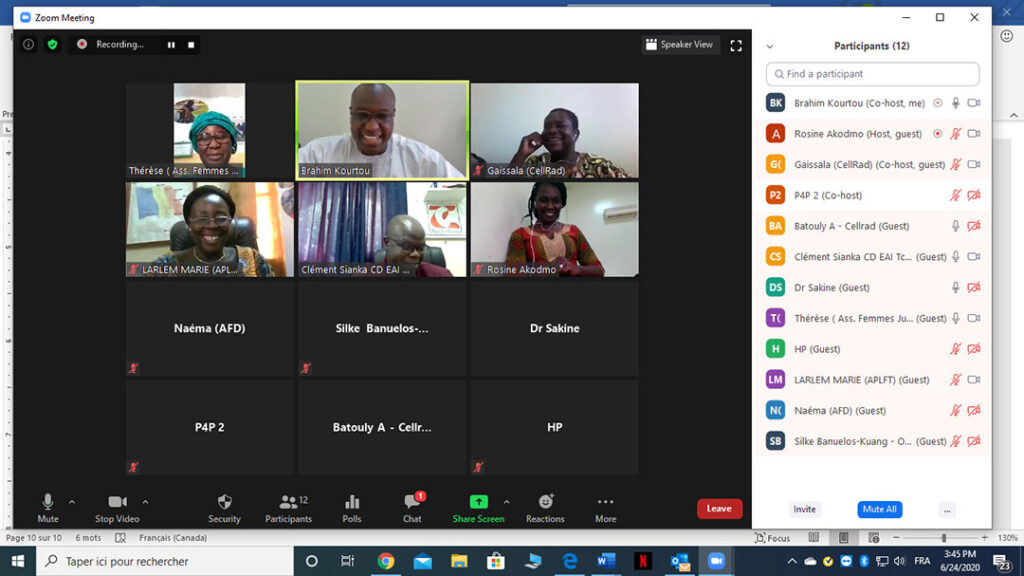ADF STAFF
As Chad fights extremism, technology donated by the U.S. is helping unite a diverse group of far-flung civil-society organizations at a time when travel can be dangerous.
“With this COVID-19 situation, we have to rethink everything,” Brahim Kourtou, Chad’s country director for the United States Agency for International Development’s (USAID) Partnership for Peace program, told ADF.
Partnership for Peace is one of 15 organizations that recently gathered over Zoom with the G5 Sahel Regional Cell for the Prevention of Radicalization and Violent Extremism (CellRad) to discuss the ongoing work of countering extremist groups such as Boko Haram that operate in the Lake Chad region.
USAID recently donated about $3,000 in technology to Chad’s division of CellRad including laptop computers, smartphones and a router. The G5 Sahel Focal Point for Chad, which has Soldiers on the ground in the Lake Chad region, also participated in the handover.
The equipment enabled Chadian groups to communicate virtually during the Countering Violent Extremism Actors Coordinating Meeting in July. The gathering brought together 15 civil society organizations, including the Centre for the Study and Development of the Prevention of Violent Extremism and the Voices for Peace project.
“Most of the actors are working on preventing violent extremism,” Kourtou said. “Meeting virtually was a way to bring the knowledge to everyone at the same level.”
The alternative, Kourtou said, would have been having people travel to meet at a single place, a decision that would put people in the field at risk from extremists and everyone at risk from COVID-19. By meeting virtually, people working in the field could give the rest of the group a real-time assessment of local conditions. It also helped participants know what others are doing so they can avoid duplicating work.
“This technology is more efficient than meeting in person,” Kourtou said.
The virtual civil society gathering was part of Chad’s multipronged approach to fighting extremism.
Chad works closely with Burkina Faso, Mali, Mauritania and Niger in the G-5 Sahel alliance to promote economic development and stop extremism. The region has become a hotbed of extremism in recent years, largely because of its low population density and porous borders.
Boko Haram and al-Qaida in the Islamic Maghreb have taken advantage of those conditions to move freely among nations, recruit new members and acquire weapons.
Aside from USAID’s donation of computer equipment, the U.S. military recently provided material support to Chadian forces, which provide the backbone of G-5’s 5,000-troop counter-terrorism efforts. The U.S. donated $8.5 million in materiel to Chad’s Special Anti-Terrorism Group, including 28 armored vehicles, 10 trucks, eight water tankers, two maintenance vehicles, tools, communications equipment and vehicle spare parts. An additional 99 vehicles were provided under a $28 million U.S. initiative.
The U.S. also provided Chadian forces with two new ambulances to help transport injured troops from the fighting area around Lake Chad to treatment in the capital, N’Djamena.

